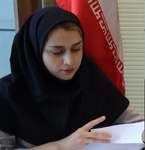“Perhaps Aung San Suu Kyi is exercising a pragmatic, political strategy of focusing on changing what she believes is most important, but the plight of Rohingya Muslims is so grave that any such utilitarian reasoning seems unworthy of a person of character,” Taliaferro tells the Tehran Times.
Following is the text of the interview:
Rohingya Muslims in Myanmar face disastrous conditions. Why are international organizations and institutions not attentive to their situation?
There has been some recognition by the United Nations and other international organizations of the devastating hardship, the cruel persecution, the threat of “ethnic cleansing” or genocide, of the Rohingya Muslims, but this has not led to humanitarian intervention or to the world powers exercising sufficient political and economic force to overturn the Mayanmar governments wrongful denial of the Rohingya people being legitimate residents of western Mayanmar. The government’s treating the Rohingya people as stateless, illegal immigrants has left them prey to not just neglect in terms of health care, education, and, of course, citizenship, but subject to violence. The reason why there has not been more effective international response is not obvious. One cannot rule out one reason being that the majority of the Rohingya people are Muslim and that if they were, say, Christian, world powers would have acted with greater force and yet world powers like Great Britain, the United States, France have a sordid history of unjust interventions in Southeast Asia, along with European powers such as Portugal and Holland, among others, and so there may be an historical reason for at least European powers and the United States to regard some of this humanitarian disaster as an internal Mayanmar matter.
Aung San Suu Kyi, the Nobel Peace winner, who was herself the victim of the Myanmar Army and had been tortured for many years, remained silent about the situation of the Rohingya Muslims and even accompanied military actions against them. What is your assessment of this topic?
Your question takes me back to the point I was suggesting about how past Western failures in the region may make some Westerners reluctant to offer a judgment on this. Aung San Suu Kyi has the respect of much of the world for her steadfast resistance to tyranny. She has rightly received the 1991 Nobel prize, and won the highest recognition of her integrity in the United States, being awarded the United States Congressional Gold Medal. Still, despite all such praise, her silence and apparent collaboration seems to be a serious tarnish to her character and reputation. Perhaps she is exercising a pragmatic, political strategy of focusing on changing what she believes is most important, but the plight of Rohingya Muslims is so grave that any such utilitarian reasoning seems unworthy of a person of character. I make that last claim with great hesitancy, given her brave endurance of persecution and opposition to tyranny herself.
What is the UN and the UNHCR's responsibility towards Muslims and to reduce their suffering and why did they not do so effectively?
I believe the UN and UNHCR’s responsibility should be as stringent, overwhelming, and uncompromising as to any religious or ethnic group. As for the last part of your question, though, it would not shock me that religious and ethnic identity does play a role in explaining why some interventions are more forceful than others. To some of us in the west and who are admirers of Buddhism or who are practicing Buddhists, there may be some reluctance to believe that the Buddhist majority in Mayanmar would treat with such cruelty the Rohingya Muslims. In the United States, for example, we often associate Buddhism with the teachings of compassion and non-violence of the Dalia Lama. What is of course needed is to look at the actual suffering and persecution that is happening right now. We can and should at some point ask whether those who call themselves Buddhists and yet engage is such cruelty, are only Buddhists in name and not truly living in light of the ideals of the Buddha. In terms of international and personal ethical and political action, however, the focus needs to be on alleviating injustice, especially in such an obvious case as we find with Rohingya Muslims.
If the situation that Rohingya Muslims face at the moment were imposed on the citizens of a Western country, all of the international organizations and institutions would probably take measures to deal with the issue. Why do these organizations practice dual standards and are indifferent to Rohingya Muslims?
I have suggested that non-religious and non-ethnic factors may play a role, such as the reluctance of Western powers to intervene given the history of unjust Western acts in Southeast Asia, but the world may be in a position where radical self-examination and the eradication of bias, leads the West to more truly live us to the ideals of justice for all people of all religious traditions.
Charles Taliaferro is the author, co-author or editor of over twenty books and is the Editor-in Chief of the journal Open Theology, based in Berlin, Germany.
By: Jalal Heirannia


























Your Comment